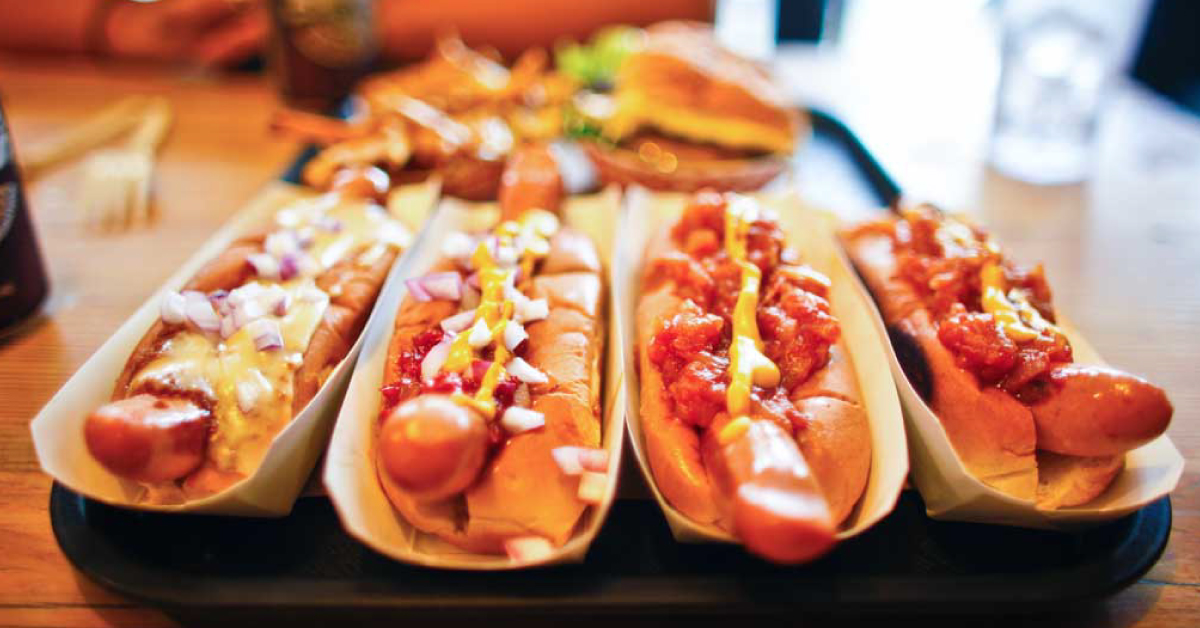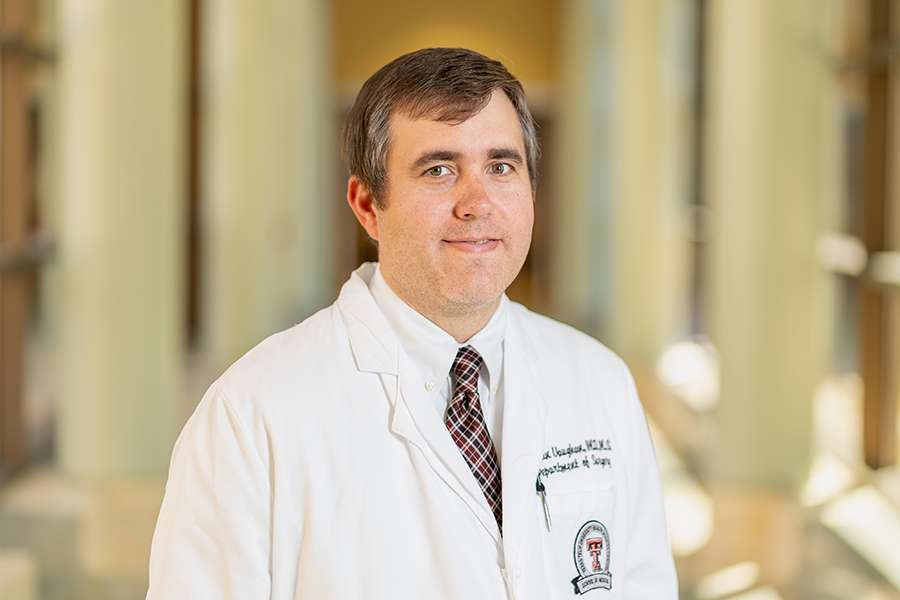Fall Festivities and Feasts: Is Your Gallbladder Trying to Tell You Something?
TTUHSC Expert Advises on Recognizing Potential Troubles

Since certain types of foods are commonly linked to gallbladder issues, moderation and diet modifications are frequently recommended to prevent or reduce flare-ups.
Fairs, festivals, football games and family gatherings are synonymous with fall. Food plays a major part in all of these activities, so your gallbladder does, too.
Justin Vaughan, M.D., a surgeon at Texas Tech University Health Sciences Center (TTUHSC), said if you’ve ever felt intermittent pain in your upper right abdomen after eating a second deep-fried Twinkie or an extra spicy chili cheese dog, you may need to be more aware of this small but mighty organ.

Justin Vaughan, M.D.
“When the gallbladder is functioning like normal, it's very easy to take for granted- digesting those fatty foods and functioning normally with no problems,” Vaughan said. “But when it starts to raise its head and you're noticing pain associated with eating fatty foods, that's when you need to take heed that the gallbladder may be trying to warn you that there's a risk with stones and possible infection down the road.”
Vaughan said the gallbladder acts as a grease trap and storage tank for bile that aids in digestion. “If we eat fried, fatty, greasy or spicy foods, they cause the gallbladder to want to contract to release bile.” He added, “If the gallbladder is not squeezing appropriately, there can be a buildup of sludge and particulate that goes on to form pure gallstones. And that stimulus of squeezing the gallbladder, if there are stones present there, sometimes can cause discomfort that we would associate being a gallbladder attack.”
Vaughan explained that when the gallbladder squeezes against the force of the stones, it causes discomfort and pain in the right upper quadrant of the abdomen underneath the ribs, sometimes radiating to the shoulder and back, and sometimes accompanied by nausea and vomiting.
Vaughan said with so many activities associated with rich, fried and fatty food this time of year, he sees a lot of consults for gallbladders in the emergency room. “It's not infrequent to have someone come in with symptoms concerning for a possible heart attack. And only after a negative workup of this chest pain for any heart issues, then we turned our attention and realized the gallbladder was the true culprit.”
Vaughan recommended asking a primary care physician to evaluate any occasional food-triggered dull pain or discomfort. He discussed other signs and symptoms that merit an emergency room visit.
“If you notice the pain is persistent, severe, does not go away quickly and it's associated with fever, jaundice or any other issues, then I would prompt an emergency room evaluation, confer on concern for infection of the gallbladder,” he said.
Since certain types of foods are commonly linked to gallbladder issues, Vaughan said moderation and diet modifications are frequently recommended to prevent or reduce flare-ups. The same things to try to help you live a heart-healthy lifestyle also have the benefit of helping minimize your risk for gallstones and a gallbladder attack, he said.
While the gallbladder is important, it’s not a vital organ. Vaughan said surgery to remove it is often the best eventual option for patients suffering gallbladder attacks and infection. “There are some medicines that can help with gallstones, but they're not incredibly effective. And it ultimately results in most people being referred for surgery, either a laparoscopic or robotic approach, to remove the gallbladder with small incisions and get you back to your normal quality of life without the pain,” Vaughan said.
Vaughan emphasized it’s important to note and check out any concerning symptoms because the gallbladder is something most people take for granted until it goes awry.
“If you do have stones or symptomatic pains or gallbladder attacks, there are things that we can do to help you,” he said. “If you're noticing severe symptoms or the associated signs that we talked about before, I'd urge you to go seek evaluation from your primary care doctor or emergency room, whatever is appropriate based on your symptoms. But don't sit at home and suffer alone.”
Related Stories
The John Wayne Cancer Foundation Surgical Oncology Fellowship Program at Texas Tech University Health Sciences Center Announced
TTUHSC is collaborating with the John Wayne Cancer Foundation and has established the Big Cure Endowment, which supports the university’s efforts to reduce cancer incidence and increase survivability of people in rural and underserved areas.
Making Mental Health a Priority in the New Year
Sarah Mallard Wakefield, M.D., a psychiatrist with Texas Tech Physicians, talks about strategies to combat widespread and growing anxiety.
TTUHSC Dean to be Inducted into the National Academies of Practice as Distinguished Fellow
Gerard E. Carrino, Ph.D., MPH, dean of the TTUHSC Julia Jones Matthews School of Population and Public Health, will be inducted into the National Academies of Practice (NAP) as a Distinguished Fellow of the Public Health Academy.
Recent Stories
The John Wayne Cancer Foundation Surgical Oncology Fellowship Program at Texas Tech University Health Sciences Center Announced
TTUHSC is collaborating with the John Wayne Cancer Foundation and has established the Big Cure Endowment, which supports the university’s efforts to reduce cancer incidence and increase survivability of people in rural and underserved areas.
TTUHSC Receives $1 Million Gift from Amarillo National Bank to Expand and Enhance Pediatric Care in the Panhandle
TTUHSC School of Medicine leaders accepted a $1 million philanthropic gift from Amarillo National Bank on Tuesday (Feb. 10), marking a transformational investment in pediatric care for the Texas Panhandle.
Texas Tech University Health Sciences Center Permian Basin Announces Pediatric Residency Program Gift
TTUHSC Permian Basin, along with the Permian Strategic Partnership and the Scharbauer Foundation, Feb. 5 announced a gift that will fund a new pediatric residency.
